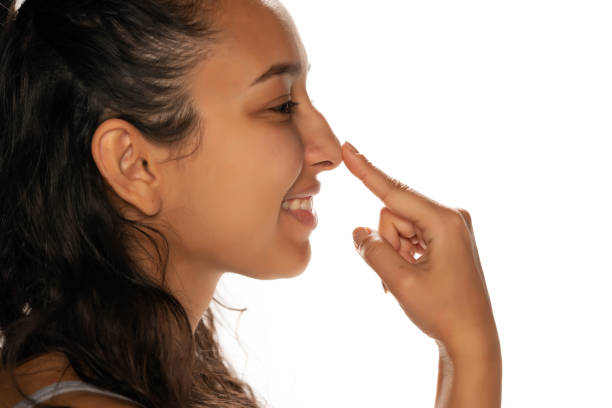How to Prepare for Rhinoplasty
Undergoing rhinoplasty in Abu Dhabi can be an exciting step toward achieving the desired facial harmony and improving self-confidence. Proper preparation is essential to ensure a smooth surgical experience and optimal results. This guide provides comprehensive insights into how to prepare for rhinoplasty, covering critical preoperative steps, lifestyle adjustments, and mental readiness. Whether you're a first-time candidate or considering the procedure for the first time, understanding the preparation process will help you approach your surgery with confidence and clarity.
Understanding the Importance of Proper Preparation
Setting Realistic Expectations
Before embarking on your rhinoplasty journey, it is crucial to have clear and realistic expectations about the outcomes. Consultation with a qualified surgeon helps you understand what can be achieved and aligns your aesthetic goals with surgical possibilities. Proper preparation involves educating yourself about the procedure, understanding the recovery process, and being mentally prepared for the changes.
Building a Trustworthy Relationship with Your Surgeon
A successful rhinoplasty begins with effective communication. Establishing a trusting relationship with your surgeon allows you to discuss your concerns, preferences, and expectations openly. This rapport ensures that your surgical plan is tailored to your unique facial structure and aesthetic desires.

Preoperative Medical Evaluation and Documentation
Comprehensive Medical History Assessment
Prior to surgery, a thorough medical evaluation is essential. This includes disclosing any previous surgeries, allergies, current medications, and underlying health conditions. A complete medical history helps your surgeon identify any factors that could influence the surgical plan or recovery.
Necessary Diagnostic Tests
Your surgeon might recommend specific tests such as blood work or imaging studies to assess your overall health status. These diagnostics help ensure that you are physically prepared for anesthesia and surgery, minimizing potential complications.
Medication and Supplement Review
Review your current medications and supplements with your healthcare provider. Certain drugs, such as blood thinners or anti-inflammatory agents, may need to be temporarily discontinued to reduce bleeding risk and facilitate healing.
Lifestyle Adjustments Before Surgery
Smoking Cessation
Smoking impairs blood circulation and delays wound healing, which can adversely affect surgical outcomes. It is advisable to stop smoking well in advance of your rhinoplasty to promote better healing and reduce the risk of complications.
Limiting Alcohol Consumption
Alcohol can interfere with anesthesia and impair immune function. Reducing or abstaining from alcohol intake in the weeks leading up to surgery contributes to a smoother recovery process.
Maintaining a Healthy Lifestyle
A balanced diet rich in vitamins and nutrients supports immune health and tissue repair. Regular exercise, adequate hydration, and proper sleep patterns also play vital roles in preparing your body for surgery.
Preparing Your Home and Environment for Recovery
Arranging Postoperative Support
Recovery from rhinoplasty typically involves some swelling, bruising, and discomfort. Arranging for a responsible companion to assist you during the initial days post-surgery ensures comfort and safety.
Creating a Comfortable Resting Space
Designate a quiet, comfortable area in your home for rest and recovery. Keep essentials like medications, cold compresses, entertainment, and hygiene supplies within easy reach to streamline your healing process.
Stocking Up on Necessary Supplies
Your surgeon may recommend specific items such as saline sprays, prescribed medications, or gentle skincare products. Preparing these items beforehand ensures you have everything needed to facilitate healing.
Mental and Emotional Preparation
Managing Expectations and Anxiety
Surgical procedures can evoke feelings of nervousness or anxiety. Practice relaxation techniques, such as deep breathing or meditation, to manage stress. Remember that realistic expectations are key to satisfaction with your results.
Visualizing Your Post-Surgery Outcome
Focusing on the positive aspects and visualizing your improved appearance can boost confidence and motivation during recovery. Support from friends, family, or support groups can also provide emotional reinforcement.
Practical Tips for a Smooth Preoperative Routine
Follow Preoperative Instructions Diligently
Your surgeon will provide specific instructions to follow before surgery, including fasting protocols, hygiene routines, and medication adjustments. Adhering strictly to these guidelines minimizes risks and optimizes surgical conditions.
Schedule Adequate Rest and Avoid Stress
Getting sufficient sleep and avoiding stressful situations prior to surgery help your body perform optimally. Rested and relaxed individuals generally experience smoother procedures and recovery periods.
Confirm Appointments and Transportation
Ensure all preoperative appointments are scheduled and confirm transportation arrangements for your surgery day. Having everything organized reduces last-minute stress and ensures punctuality.
FAQs
How far in advance should I start preparing for rhinoplasty?
It is recommended to begin preparing at least two to four weeks before your scheduled surgery date. This allows ample time for lifestyle adjustments, medical evaluations, and mental readiness.
Are there specific foods I should avoid before rhinoplasty?
While there are no strict dietary restrictions, it is advisable to maintain a healthy diet, avoid alcohol and caffeine close to the surgery date, and follow your surgeon's specific instructions regarding fasting and medication intake.
Can I continue my regular skincare routine before rhinoplasty?
Your surgeon may advise you to avoid certain skincare products or treatments before surgery. It's best to follow their guidance and discuss any skincare routines you wish to maintain.
Is it necessary to stop wearing contact lenses before rhinoplasty?
If you wear contact lenses, your surgeon may recommend switching to glasses for a period before surgery, especially if nasal swelling or splinting is involved. Always follow your healthcare provider's advice regarding this matter.
Conclusion
Preparing for rhinoplasty in Abu Dhabi involves a combination of medical, lifestyle, and emotional steps aimed at ensuring safety, comfort, and optimal aesthetic results. By understanding and implementing these preparatory measures, you can approach your surgery with confidence and set the stage for a successful recovery. Remember, thorough preparation not only enhances surgical outcomes but also makes the entire experience more positive and satisfying.